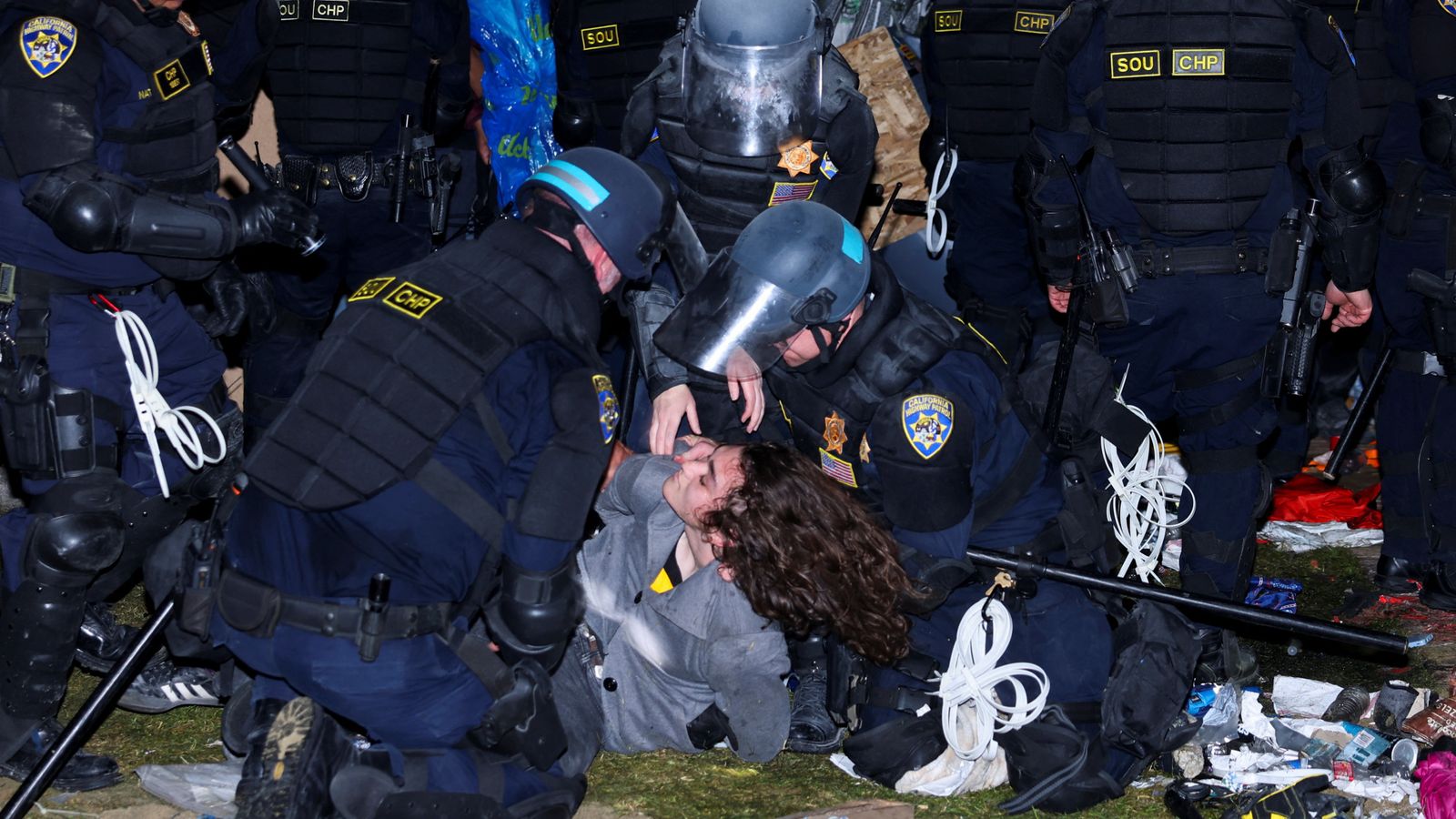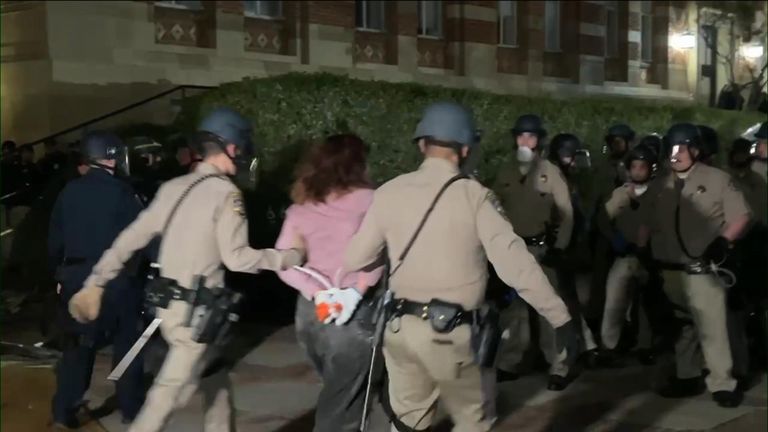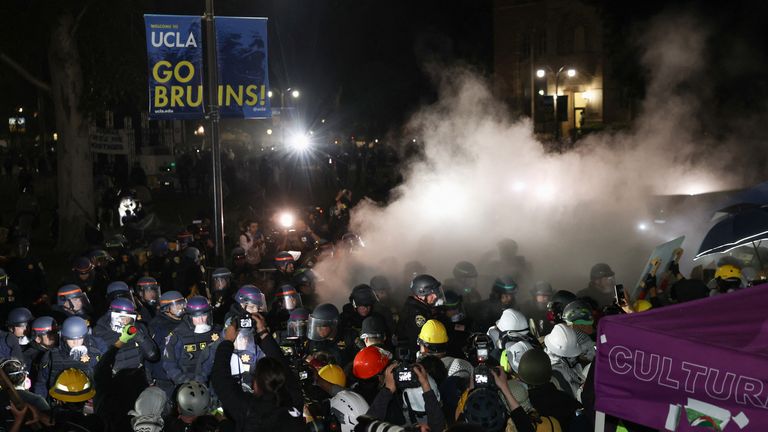‘Hold the line’: Inside the pro-Palestinian protest’s last stand as police break up UCLA encampment


Booming orders of “hold the line” and “pass the helmets to the front” could have come from police commanders on the UCLA campus.
But, instead, they were from the leaders of a pro-Palestinian student encampment as they tried to organise the troops.
Barely any journalists have been permitted access to the tented camp, which has been occupied mostly by students for the past week.
I was there to witness their final stand from the inside.
They were outnumbered by the police and outsized in terms of heft and hardware. Where the police had rubber bullets and riot shields, the protesters had wooden pallets and umbrellas for protection.
But for hours, they resisted the advance, tying tarpaulin sheets together with string and cable ties, to reinforce a perimeter around the camp.
Read more: Why are university students protesting in the US?
When that was hacked down by officers, they linked arms in defiance, chanting “shame” at the police.
Riot police started tearing down the barricades from the outside, and were met with chemical spray from the protesters. One officer heaved violently after breathing in the substance.
Advertisement
The air was thick with smoke and the sound of flashbangs, fired by police, was constant.
Rubber bullets were fired into the crowds, and I saw at least one man stretchered off as a result.
Some students were pushed to the ground and arrested one by one. “This is ridiculous,” one yelled, while being carted off.
Between 200 and 300 people were taken into custody, according to two law enforcement sources.

Most, if not all, are expected to be cited and released for misdemeanours, including trespassing, vandalism, and/or assault on police officers.
There will be scrutiny, too, of the size and strength of the police response and whether it was necessary.
This was, after all, a largely peaceful protest, with students calling for the university to cut funding ties with Israel.
It turned violent only on Tuesday evening when counter-protesters attacked the pro-Palestinian faction, throwing objects and fireworks into the camp confines.
For almost three hours police were nowhere to be seen and students were left bloodied and beaten.

The violent scenes for two nights in a row at UCLA, and across the country as this movement has spread, prompted President Biden to speak publicly on the issue for the first time.
“Violent protest is not protected. Peaceful protest is,” he announced from the White House.
“Destroying property is not a peaceful protest – it’s against the law. Vandalism, trespassing, breaking windows, shutting down campuses, forcing the cancellation of classes and graduation: none of this is a peaceful protest.”
I saw what had been done to Royce Hall at UCLA, one of the grandest buildings in one of America’s most prestigious universities.

Keep up with all the latest news from the UK and around the world by following Sky News
The beautiful stone archway is now covered in pro-Palestinian and anti-Israeli graffiti, with “f*** Israel” on the walls and “free Gaza” spray-painted on the ground.
The protesters will say that damage to property is nothing compared to the plight of the people of Gaza.
But the way they are making their statement is undoubtedly divisive.